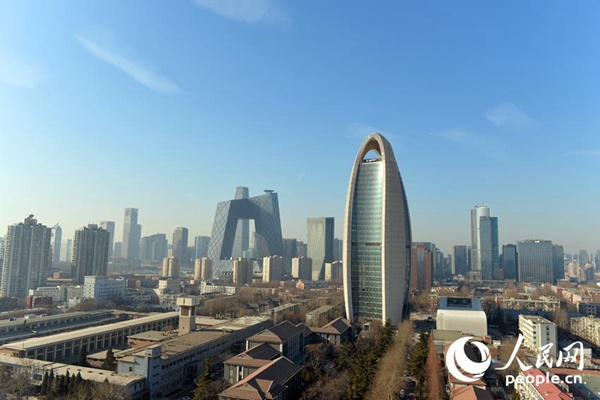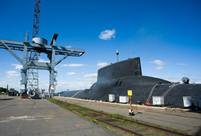

 |
Beijing on Saturday announced that it would speed up construction of a "subsidiary administrative center" while promising to limit its population to 23 million people.
The announcement was made as the city on Saturday concluded a plenary session of its party committee, during which a guideline was passed on promoting the integration of Beijing with its neighboring Hebei Province and Tianjin Municipality.
The city's "subsidiary administrative center" would be "focused" on Tongzhou, a suburban district to the southeast, and its construction must have "remarkable progress" by 2017, according to the guideline.
The guideline also said the city must stick to its population control target of 23 million people by 2020. The city's total population stood at 21.5 million in 2014, according to official data.
Beijing has banned hospitals in downtown Dongcheng and Xicheng districts from adding beds, state broadcaster CCTV reported Saturday. Beijing Tian Tan Hospital in the downtown Dongcheng District will be moved to the south ring road in Fengtai District.
The Chinese capital has sought to address its severe "urban diseases," such as traffic congestion and air pollution, by curbing its population growth and moving some facilities to nearby regions.
The announcement said moving out some of Beijing's non-capital functions would be a top priority in the strategy of integrating Beijing, Tianjin and Hebei that China has been promoting.
Over the past year, a number of wholesale markets in the city's central areas were shut down or relocated. The capital has also accelerated the pace of industrial restructuring and took a more stringent attitude to floating population registration.
 Top 10 summer resorts across China
Top 10 summer resorts across China Campus belle in HK goes viral online
Campus belle in HK goes viral online Get ready for the world's most thrilling water rides
Get ready for the world's most thrilling water rides Evolution of Chinese beauties in a century
Evolution of Chinese beauties in a century Creative graduation caps of ‘vigorous elves’
Creative graduation caps of ‘vigorous elves’ Typhoon class strategic Submarine in photos
Typhoon class strategic Submarine in photos Japan’s crimes committed against "comfort women"
Japan’s crimes committed against "comfort women" Legendary life of a bee-keeping master in Hainan
Legendary life of a bee-keeping master in Hainan 4-year-old cute 'monk' spends summer holiday in temple
4-year-old cute 'monk' spends summer holiday in temple Top 10 most competitive Chinese cities in Belt and Road Initiative
Top 10 most competitive Chinese cities in Belt and Road Initiative Top 10 travel destinations in the world
Top 10 travel destinations in the world Promote reform as stock market stabilizes
Promote reform as stock market stabilizes Taking stock: the ups and downs of Chinese shareholders
Taking stock: the ups and downs of Chinese shareholders Small rise in CPI shows growth still slack: experts
Small rise in CPI shows growth still slack: experts Donations struggle to grow after China stops getting organs from executed prisoners
Donations struggle to grow after China stops getting organs from executed prisonersDay|Week